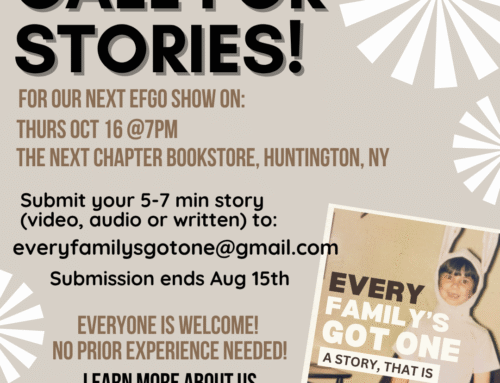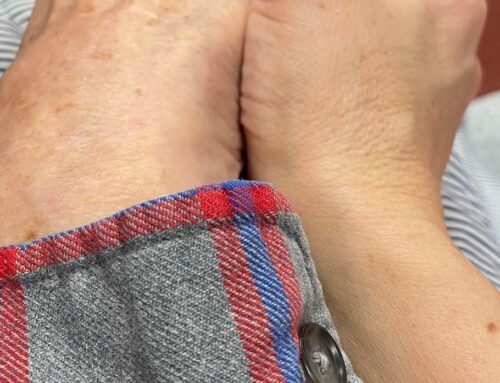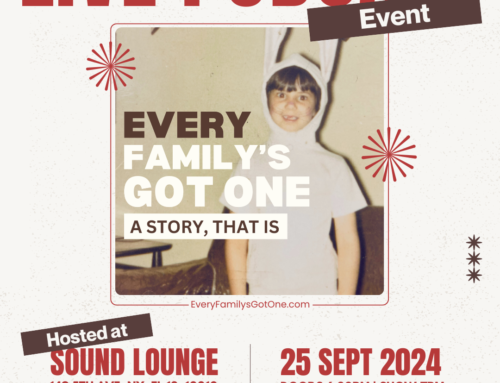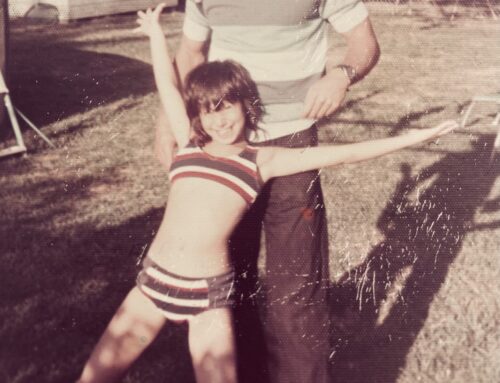Every Family’s Got One Guest Writer — Stacie Evans

My grandmother, who I called Mom, had many children. Biologically, there were two, my dad and my uncle. But she was a foster parent for more than 40 years, starting when my father was a teenager. Many of her foster kids stayed in our lives long after they moved out of her house.
They became family.
The older ones became my aunts and uncles. The ones my age and younger became cousins.
I think about what having a long-term foster placement meant for the kids who came to Mom’s house, and about the ones who couldn’t stay, as much as they needed to.
I think about the ones who thrived.
I think about the ones whose families stayed connected and came back for them, and the ones whose families couldn’t be those families. And I wonder what happened to the ones who didn’t stay in our family after leaving Mom’s house.
The child welfare people would always send Mom the hardest cases — large family groups of kids they didn’t want to break up, the kids who were the most emotionally distressed, the ones who didn’t speak, the ones with severe developmental delays, the ones no one else seemed able to manage.
She always managed.
I grew up with those kids, lying on the floor of the TV room in the dark on Saturday nights watching Chiller Theater and Creature Feature and scaring the mess out of ourselves, playing invented games all over her eight-bedroom house and through its enormous back and side yards, discovering the wild rhubarb patch just off the property, riding our bikes up and down The Court.
I had a small family…
but I certainly never felt that when we were at Mom’s.
Thinking about my grandmother’s work as a foster parent brought me to a surprise understanding of something about myself.
All those years of visiting my grandmother, hanging out with the changing roster of foster children, thinking of all of them as family.
The regularness of it settled into me…
and made me know certain things, know them as things that just were true. And that meant that all the things about all those kids that weren’t “normal” were. The kids with severe developmental delays, the kids with personality disorders, the feminine boys, the masculine girls, the girl with vitiligo, the girl who was covered — face, chest, arms, hands — in twisted, burn-scarred flesh …
everything was normal…
everything was just how families were, just how people were.
I think Mom’s house planted and nurtured acceptance in me, the ability to see whatever people were, whatever they couldn’t help being, as normal. I lacked tolerance for things that could be chosen, things that could be controlled: a bad attitude, prejudice, selfishness, littering.
It’s only as an adult –
and a middle-aged one at that – that I’ve seen the clear line from Mom’s house of “everybody fits” to my ability to take people as they come.
I’m far (FAR) from perfect — I made serious missteps in my go-along-to-get-along high school career and didn’t quite correct them until I’d been at college a while. I’ve made any number of missteps in all the years since. I’m still pretty intolerant of things that can be controlled (racism, homophobia, fat jokes, littering), but for the most part…
the lessons learned unconsciously…
while playing at my grandmother’s house have stayed with me.
I want to be clear, place a solid divider between “acceptance” and “tolerance.” I tolerate a lot of things — (some) conservative political opinions, the weather, close-talkers. I may not like or agree with them, but I can put up with them. Acceptance is something else altogether. There’s nothing to think about, no judgments to make.
What is just is.
And it’s fine with you, and it doesn’t threaten you, and you don’t pat yourself on the back for accepting it, and you don’t show it off to your friends because you imagine it gives you some kind of gritty street cred, and your life goes on. When I can’t accept, I work for tolerance. But I don’t let myself forget that they aren’t the same thing.
Acceptance doesn’t mean…
acting as if there is nothing to accept. In other words, I don’t pretend that I can’t see difference. That seems silly at best, and insulting or worse the rest of the time. It drives me crazy when people are trying to have a conversation about race and someone says, “Oh, I don’t see color.” Not seeing color is erasure, makes me cease to exist.
Accepting someone doesn’t mean…
negating/denying/erasing the things that make them different. Acceptance means that the things that make someone different might be interesting, and might present an opportunity for you to learn something …
but acceptance means…
is that those differences don’t matter in the slightest as far as how you behave with that person, how you value that person, don’t impact your ability to see that person as a person.
And that was the never-spoken take away of growing up at Mom’s house, a lesson so deeply rooted, it seems more innate than instructed.
This story was previously published on Girlgriot.

Stacie Evans is a multi-genre writer who lives in Brooklyn, NY. She’s an alum of VONA Voices workshops for writers of color and is currently working on a comic: Adventures in Racism.





Love the lesson of acceptance that was learned at Mom’s House and enjoyed reading all about Stacie’s experience in her younger years and how it has indeed translated into her life nowadays, too.
[…] April I published an essay on Every Family’s Got One. I introduced my paternal grandmother in her decades-long role of foster parent, writing how I […]